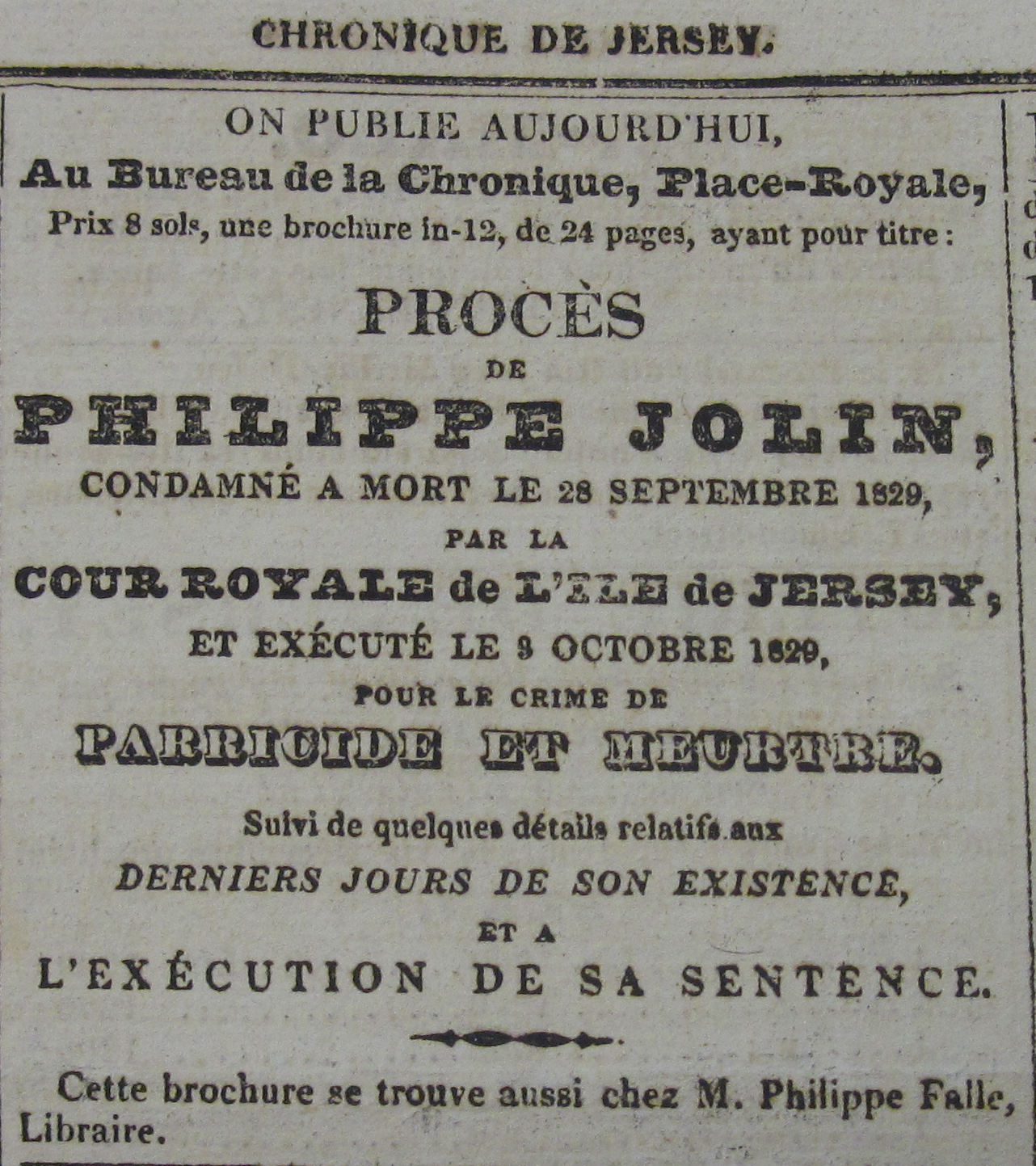Capital punishment in Jersey on:
[Wikipedia]
[Google]
[Amazon]
 The
The
 The
The island country
An island country, island state or an island nation is a country whose primary territory consists of one or more islands or parts of islands. Approximately 25% of all independent countries are island countries. Island countries are historically ...
of Jersey
Jersey ( , ; nrf, Jèrri, label= Jèrriais ), officially the Bailiwick of Jersey (french: Bailliage de Jersey, links=no; Jèrriais: ), is an island country and self-governing Crown Dependency near the coast of north-west France. It is the l ...
is a state in which capital punishment
Capital punishment, also known as the death penalty, is the state-sanctioned practice of deliberately killing a person as a punishment for an actual or supposed crime, usually following an authorized, rule-governed process to conclude that t ...
has been abolished.
History
Until the 19th century, hangings were carried out on Westmount (french: Mont-Patibulaire (gallows hill); '' Jèrriais'': Mont ès Pendus (hill of the hanged men) inSaint Helier
St Helier (; Jèrriais: ; french: Saint-Hélier) is one of the twelve parishes of Jersey, the largest of the Channel Islands in the English Channel. St Helier has a population of 35,822 – over one-third of the total population of Jersey – ...
. The last such execution was carried out on 3 October 1829, when Philippe Jolin was hanged for murder.
The following execution, that of François Bradley on 11 October 1866, was carried out in public outside the prison in Saint Helier. The law specified hanging in public until 1907. The next execution, therefore, that of Joseph Philip Le Brun on 12 August 1875, also took place under the same conditions. It was the last public hanging in the British Isles (the United Kingdom had abolished public hangings in 1868).
The death sentence passed on Thomas Connan (executed 19 February 1907) necessitated a law change to permit the hanging to take place within the prison walls. During the German occupation
German-occupied Europe refers to the sovereign countries of Europe which were wholly or partly occupied and civil-occupied (including puppet governments) by the military forces and the government of Nazi Germany at various times between 1939 an ...
from 1940 to 1945, the occupying forces carried out executions by firing squad. The last execution in Jersey was on 9 October 1959, when Francis Joseph Huchet was hanged for murder.
In Jersey, the last death sentence was passed in 1984, but was commuted to life imprisonment.
Abolition
Capital punishment was abolished by the Homicide (Jersey) Law 1986 in relation to the offence of murder and by the Genocide (Amendment) (Jersey) Law 1987 in relation to the offence of genocide. Technically, the death penalty remained available to a military court, but by the 1986 and 1987 laws the Royal Court of Jersey lost the power of capital sentencing. References to capital punishment in obsolete laws were formally removed by the Criminal Justice (Miscellaneous Provisions) (No. 2) (Jersey) Law 2007. The ''Human Rights (Amendment) (Jersey) Order 2006'' amends the ''Human Rights (Jersey) Law 2000'' to give effect to Protocol No. 13 of theEuropean Convention on Human Rights
The European Convention on Human Rights (ECHR; formally the Convention for the Protection of Human Rights and Fundamental Freedoms) is an international convention to protect human rights and political freedoms in Europe. Drafted in 1950 by ...
providing for the total abolition of the death penalty. Both of these laws came into effect on 10 December 2006.
References
Jersey
Jersey ( , ; nrf, Jèrri, label= Jèrriais ), officially the Bailiwick of Jersey (french: Bailliage de Jersey, links=no; Jèrriais: ), is an island country and self-governing Crown Dependency near the coast of north-west France. It is the l ...
Death in Jersey
Society of Jersey